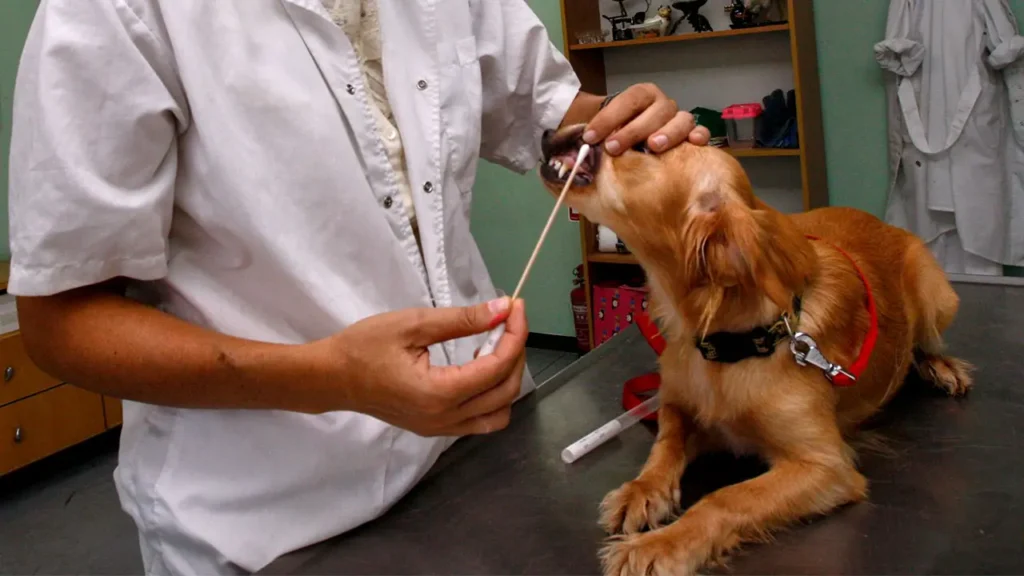Modern technologies open up new horizons not only for human medicine but also for caring for the health of pets. One of the striking examples of this is dog genetic testing, which is rapidly gaining popularity among pet owners around the world.
What is Dog Genetic Testing?
Genetic testing for dogs is the process of analyzing a pet’s DNA to obtain information about its breed, hereditary diseases, behavioral characteristics, and other genetic characteristics. By analyzing a saliva sample or cheek swab, a laboratory can decipher many genetic markers that provide a complete picture of the individual characteristics of each dog.
Why Conduct a Genetic Test For a Dog?
Many dog owners still rely solely on visual characteristics or breeder documents to determine the breed of their pet. However, appearances can often be deceiving, especially in the case of mixed breeds. Genetic testing allows you to accurately determine the breed composition and learn about the predisposition to various diseases.
Here are just a few reasons why owners choose dog genetic testing:
- Breed composition
This is especially important for owners of mixed-breed dogs. The test will show which breeds are present in the pet’s genetic makeup, in what proportions, and from which ancestors they were inherited.
- Hereditary diseases
Genetic mutations can be passed from parents to offspring and remain hidden until a certain age. Early detection of the risk of diseases such as hip dysplasia, degenerative myelopathy, heart or eye problems allows you to begin timely prevention and treatment.
- Behavior traits
Some character traits are directly related to genetics. Knowing hereditary behavioral traits will help you choose the right approach to training and raising a dog.
- Choosing the right diet and care
Some genetic traits require a specific diet, exercise, or medical supervision.
How is dog genetic testing performed?
The procedure is extremely simple and does not require a visit to the veterinary clinic. Usually, the owner is sent a special kit to collect a sample. It is enough to take a swab from the inside of the dog’s cheek and send it back to the lab. A few weeks later, the owner receives a detailed report with the results of the analysis.
One of the well-known leaders in this market is Basepaws, a company that specializes in DNA testing for pets. Basepaws reports present information in a clear and visually appealing way. The owner receives not only data on the breed, but also on potential health risks, genetic features of metabolism, predisposition to obesity, and other important aspects.
Advantages of Testing at Early Stages
Conducting dog genetic testing at an early age of the pet allows you to adjust its care in advance. If it is known that the dog has a genetic predisposition to certain diseases, you can develop a program of preventive examinations, nutrition, and activity in advance. This helps to extend the life of the pet and improve its quality.
How reliable are the results?
Most modern laboratories, including Basepaws, use high-precision DNA sequencing methods. This allows achieving results reliability of over 95%. Of course, it is worth choosing proven companies with a good reputation, certification, and transparent work methods.
Prospects for the development of dog genetic testing
Every year, the demand for genetic tests for dogs is growing. Owners seek to get more information about their pets, caring not only about the current state of health, but also about the prevention of possible problems. Moreover, such tests contribute to the development of veterinary science in general, allow for the creation of more accurate databases on the genetics of various breeds, and develop new methods of treatment and diagnostics.
Concsluion
Dog genetic testing is not a tribute to fashion, but an important tool for a responsible owner. Thanks to accurate DNA analysis, you can better understand your pet, identify risks, and adjust the dog’s lifestyle so that it lives a long and healthy life.
Also Read-Common Situations Where Dog Bites Happen and What You Can Do Legally


